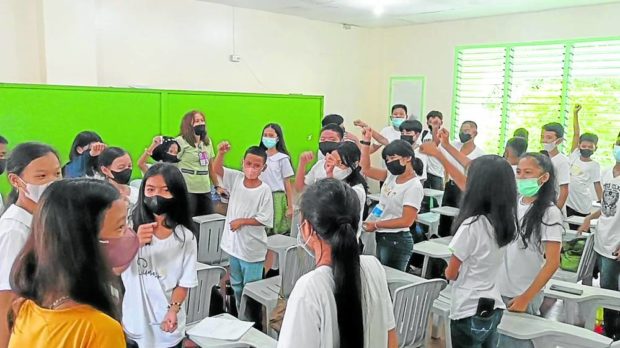SHS VP must prioritize poor beneficiaries — Gatchalian

SHS VP is a financial assistance program granting subsidies to qualified learners in participating institutions.
Gatchalian, chairperson of the Senate panel on education, said the provision of this subsidy to non-poor beneficiaries contradicts the goal of the initiative.
“We’re subsidizing non-poor students. I call it leakage, no? Because it is important to prioritize the poor,” said Gatchalian.
“For me, that’s a leakage. A wastage — because we’re not targeting the poor. To make it worse, we’re not also decongesting our schools and we need to correct this immediately,” he added.
According to Gatchalian, from 2019 to 2020, at least 64 percent of the recipients of SHS VP are non-poor, while only 36 percent are poor.
Article continues after this advertisementThe data for 2021-2022 is no different, said the senator, noting that during this period, at least 70 percent of recipients were non-poor, while only 30 percent were categorized as poor.
Article continues after this advertisementDuring his panel’s Senate hearing, Gatchalian also presented data from the Philippine Statistics Authority’s (PSA) Annual Poverty Indicators Survey.
In School Year 2019-2020, Gatchalian said P18 billion was allocated for SHS VP, but only P7.3 billion of the allocation went to poor beneficiaries.
The same thing happened in School Year 2021-2022, where SHS VP had a fund of P13.69 billion, but only P7.2 billion went to poor individuals.
“If you remember last time, almost P7 billion rin for the [Educational Service Contracting]. So in a year, the leakage is about P14B. Let’s just say P15B out of the P40B allocated,” said Gatchalian.
‘A gap to be addressed’
At the other end of Gatchalian’s prodding was the Department of Education, represented by Atty. Tara Rama, Director III of the Government Assistance and Subsidies Office.
Rama admitted that the issue raised by Gatchalian is one of the gaps that they are aiming to address.
“That is one of the gaps that we will be addressing in our new order revised guidelines,” said Rama.
“That’s why we also wanted to include in our guidelines, actually, the coordination with PSA as to how they determined the income of the household and even the tool or the form that they will be using we will also be adopting so that we can really target those underprivileged,” she added.
Meanwhile, speaking on behalf of the Coordinating Council of the Private Educational Associations, Sr. Felicitas Bernardo said there is also a need to ensure that the subsidy being provided to the beneficiaries “would result in higher student learning.”
“I agree that poverty of the learner [should] be considered primarily. However, equally critical is the assurance that the money used for the poor would result [in] higher student learning. Thus, I suggest that please include in the guideline the [school’s] track record or the [schools’] capability to bring about student learning,” said Bernardo.
Bernardo justified her remark by pointing out that the government is already spending a lot of money, but more would be wasted “if the quality of education that these poor people will be getting is not there.”